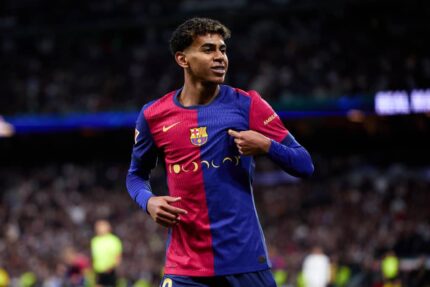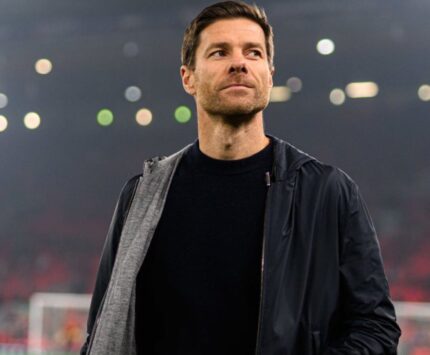Florentino Pérez has once again secured his position as president of Real Madrid, having been re-elected for a fifth consecutive term on Sunday. The 77-year-old, who has held the role since 2009, stood uncontested in the election, reaffirming his stronghold over the Spanish football giant. This victory continues Florentino Pérez’s unbroken reign, having run unopposed in every election since 2013. His leadership has seen the club achieve unparalleled success, including seven La Liga titles and seven UEFA Champions League trophies. His re-election marks a significant chapter in the ongoing legacy of his presidency.
Real Madrid’s official statement confirmed the election process, noting that Pérez’s sole candidacy was in compliance with the club’s statutes. The announcement solidifies his authority and sets the stage for another era of leadership, with Pérez at the helm guiding the club into the future. The continuity of Pérez’s presidency is seen as a stabilizing force for Real Madrid, maintaining the club’s direction under his experienced management.
Key Appointments: Francisco Garcia Sanz, Manuel Redondo, and Jose Angel Sanchez Join the Board
In addition to Florentino Pérez’s re-election, Real Madrid has made important changes to its board structure. Francisco Garcia Sanz, the former chairman of Wolfsburg, joins the board alongside Manuel Redondo Sierra and Jose Angel Sanchez. These three appointments, confirmed following Sunday’s board meeting, will help shape the club’s direction until 2029. Garcia Sanz, who previously led the Bundesliga club from 2009 to 2018, brings a wealth of experience in the sports sector and a solid reputation in the automotive industry, especially through his affiliation with the Volkswagen Group. His inclusion is seen as a strategic move to infuse fresh perspectives into the board.
Meanwhile, Redondo Sierra and Sanchez are already integral figures at Madrid, holding significant executive roles. Redondo Sierra has long been involved with the president’s office, while Sanchez serves as the general director. Their new board positions enhance their responsibilities without altering their day-to-day roles. Both have been with the club for over two decades, contributing to its inner workings and success. Their promotion to board members solidifies their influence within the club’s decision-making structure.
What Do These Board Changes Mean for Real Madrid?
The board changes at Real Madrid are significant, not only for the individuals involved but also for the club’s future. Redondo Sierra and Sanchez, though already in key executive positions, now hold official board responsibilities, which enhances their influence within the club’s leadership. Their promotions underline their importance in the club’s operations, placing them as the second most important figures after Pérez himself. This shift signals Florentino Pérez’s intent to reinforce the club’s management as he prepares for a possible leadership transition in the coming years.
Garcia Sanz’s appointment further reflects Florentino Pérez’s strategy of bringing in individuals with extensive experience from other sectors to help guide the club. Despite Garcia’s past at Wolfsburg, sources indicate that he has always been a supporter of Real Madrid, making him a suitable addition to the board. His diverse background in business and sports could bring a fresh perspective to Madrid’s operations, aiding in strategic decisions both on and off the field. These changes come at a time when Real Madrid is preparing for the future, and Florentino Pérez’s succession plans may begin to take shape.
Real Madrid’s Evolving Board Structure and Leadership Succession Plans by Florentino Pérez
The introduction of Garcia Sanz, Redondo Sierra, and Sanchez to the Real Madrid board represents a notable shift in the club’s leadership structure, marking the first significant change in years. Following the loss of two key board members in recent years—first vice-president Fernando Fernández-Tapias and executive Raul Ronda—Pérez has opted to bring in younger, experienced individuals to help guide the club through a new era. At 67, Garcia Sanz is the oldest of the new appointees, with Redondo Sierra at 66 and Sanchez at 57. These new members bring a fresh dynamic to an otherwise ageing board, which has long been dominated by veteran figures.
This reshuffling could be a precursor to more significant changes within the club’s leadership. According to senior sources, the current period is critical in signaling who might succeed Pérez as president in the future. With a board that now includes younger members, there is speculation that Pérez is laying the groundwork for the club’s future leadership. As Real Madrid enters a new phase under Florentino Pérez’s continued presidency, fans and analysts alike will be watching closely to see how these changes impact the club’s strategic direction and governance in the years to come.














